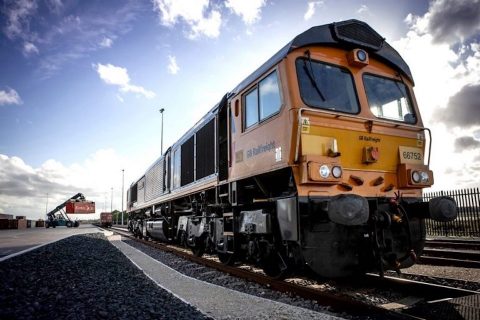Bulgaria tenders hub terminal construction on shared corridor with Greece

The Bulgarian National Railway Infrastructure Company (NRIC) has launched a tender for the technical design and construction of an intermodal terminal in Ruse. The tender amounts to approximately 27 million euros, and the new terminal will have a key role in a developing rail freight corridor with Greece.
Do you want to read the full article?
Thank you for visiting RailFreight.com. Become a member of RailFreight Premium and get full access to all our premium content.
Are you already a member?
Having problems logging in? Call +31(0)10 280 1000 or send an email to customerdesk@promedia.nl.




